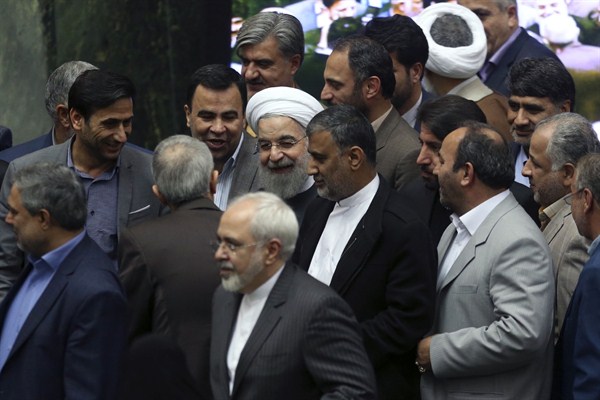Last week marked the formal implementation of the agreement signed last summer by Iran and the international community to roll back Tehran’s nuclear program. Although the news did not create as much of a fuss as the actual signing of the agreement in July, in the larger context of international relations, it’s still a pretty big deal.
The agreement is a critical step forward for nuclear nonproliferation efforts and for the upholding of global norms and the will of the international community. It’s a victory for the notion that intractable international issues can be resolved via diplomacy and negotiations, rather than by use of force. It represents a huge opportunity for Iran, both economically and politically, to reassert itself in the region and on the global stage. For the Middle East, ending Iran’s isolation could lead to greater engagement on issues of regional import, like resolving the war in Syria. For the United States and Iran, it represents the first tentative opening between the two countries in more than 35 years.
It’s on the last point, however, that we should perhaps view this accord more modestly. That Tehran and Washington are talking is a major step forward. And as we saw last week, when U.S. sailors who had inadvertently navigated into Iranian territorial waters in the Persian Gulf were detained but quickly released by Iranian forces, as well as in the prisoner swap that saw the release from Iranian prisons of five Americans, four of them dual U.S.-Iranian nationals, the fact that the two nations are now on speaking terms is already bringing concrete and positive results.

